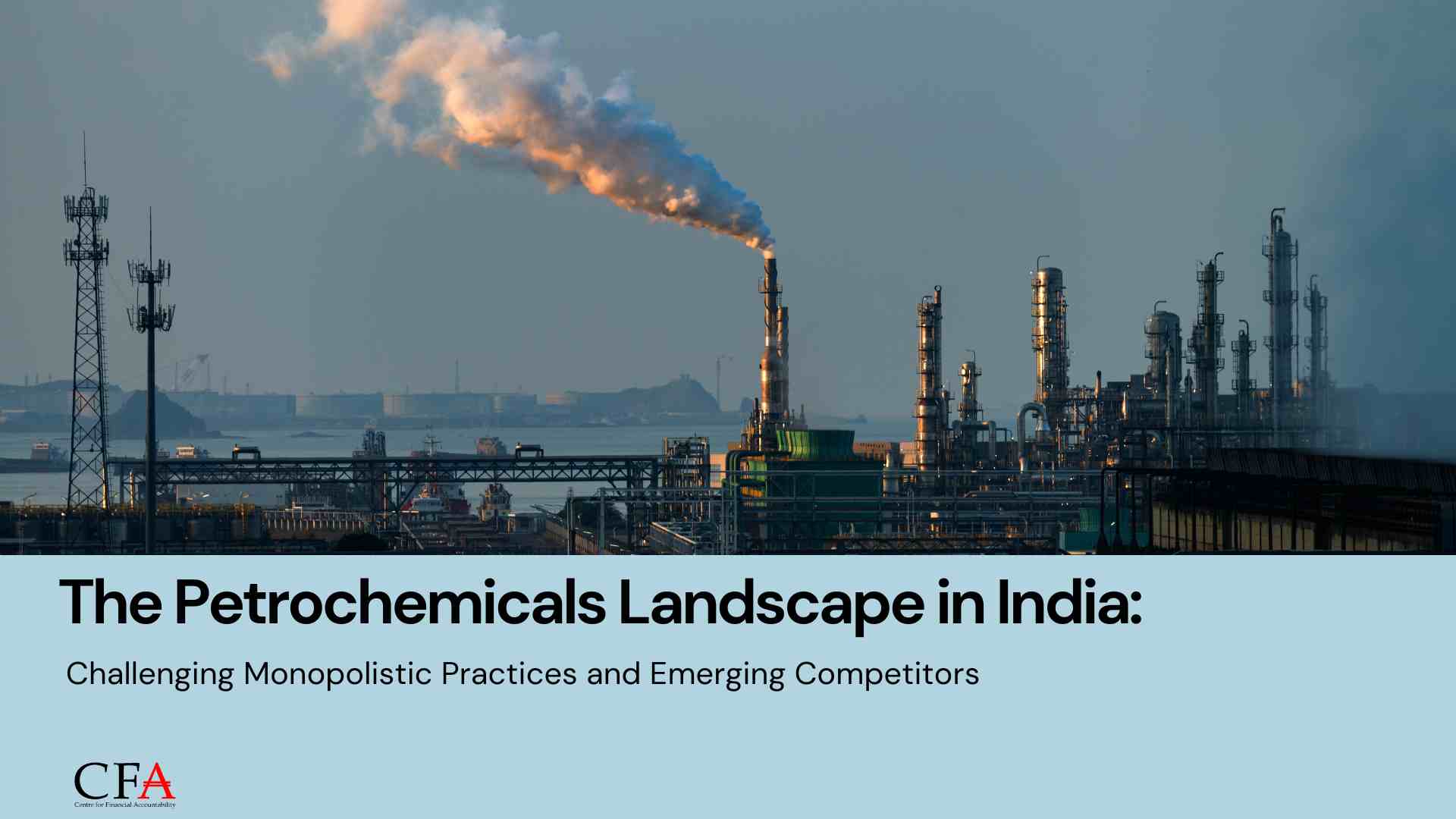Challenging Monopolistic Practices and Emerging Competitors.
 India holds a prominent position in the global petrochemicals industry. Demand for plastics across diverse sectors including packaging, construction, automobiles, and textiles, has been going up rapidly. To foster the growth of the industry, the Indian government has implemented several initiatives, such as offering import relief for crucial raw materials like coal and MEG (mono ethylene glycol). Key players in the Indian petrochemicals industry, such as Reliance Industries, Indian Oil Corporation, and the Adani Group, have either already made or intend to make substantial investments in projects manufacturing petrochemicals – these are among the country’s largest privately-owned and public conglomerates. Monopolistic control over the production of petrochemicals has resulted in conflicts between major players on the one hand, and medium and small domestic manufacturers and users on the other.
India holds a prominent position in the global petrochemicals industry. Demand for plastics across diverse sectors including packaging, construction, automobiles, and textiles, has been going up rapidly. To foster the growth of the industry, the Indian government has implemented several initiatives, such as offering import relief for crucial raw materials like coal and MEG (mono ethylene glycol). Key players in the Indian petrochemicals industry, such as Reliance Industries, Indian Oil Corporation, and the Adani Group, have either already made or intend to make substantial investments in projects manufacturing petrochemicals – these are among the country’s largest privately-owned and public conglomerates. Monopolistic control over the production of petrochemicals has resulted in conflicts between major players on the one hand, and medium and small domestic manufacturers and users on the other.
Amid India’s commitments to international climate change objectives, the Adani Group has announced a decision to enter the petrochemical industry by utilising coal from various controversial projects within and beyond the country’s borders. This move raises concerns about the likely environmental implications of petrochemical manufacturing in the coming decades. Having announced a plan to establish an ambitious coal-to-PVC (polyvinyl chloride) manufacturing unit through Adani Petrochemicals Limited at Mundra, Gujarat, in western India, the Adani Group aims to diversify its business operations in the hope of becoming a significant player in the country’s plastics production industry.
The plan, which was initially announced in 2021, was briefly suspended in early 2023 following the release of a report by the New York-based short seller Hindenburg Research alleging stock manipulation and a range of other malpractices by the Adani Group. By June, however, the plan was revived. It has been reported that the country’s largest bank in the public sector, the State Bank of India (SBI) would lead a consortium of banks and financial institutions to raise ₹14,500 crore (or around US$ 1.8 billion at current exchange rates) out of the total project cost of ₹34,500 crore (or around $4.2 billion). Financial closure was expected by mid-August 2023. However, this had not been achieved till November, according to a six-monthly Environmental Compliance report submitted by the Adani Group. Further details were awaited at the time of publishing this report. The setting up of this project raises questions about utilising coal resources and the environmental implications of the venture.
Read and download the report here: The Petrochemicals Landscape in India: Challenging Monopolistic Practices and Emerging Competitors.
Centre for Financial Accountability is now on Telegram and WhatsApp. Click here to join our Telegram channel and click here to join our WhatsApp channel and stay tuned to the latest updates and insights on the economy and finance.

